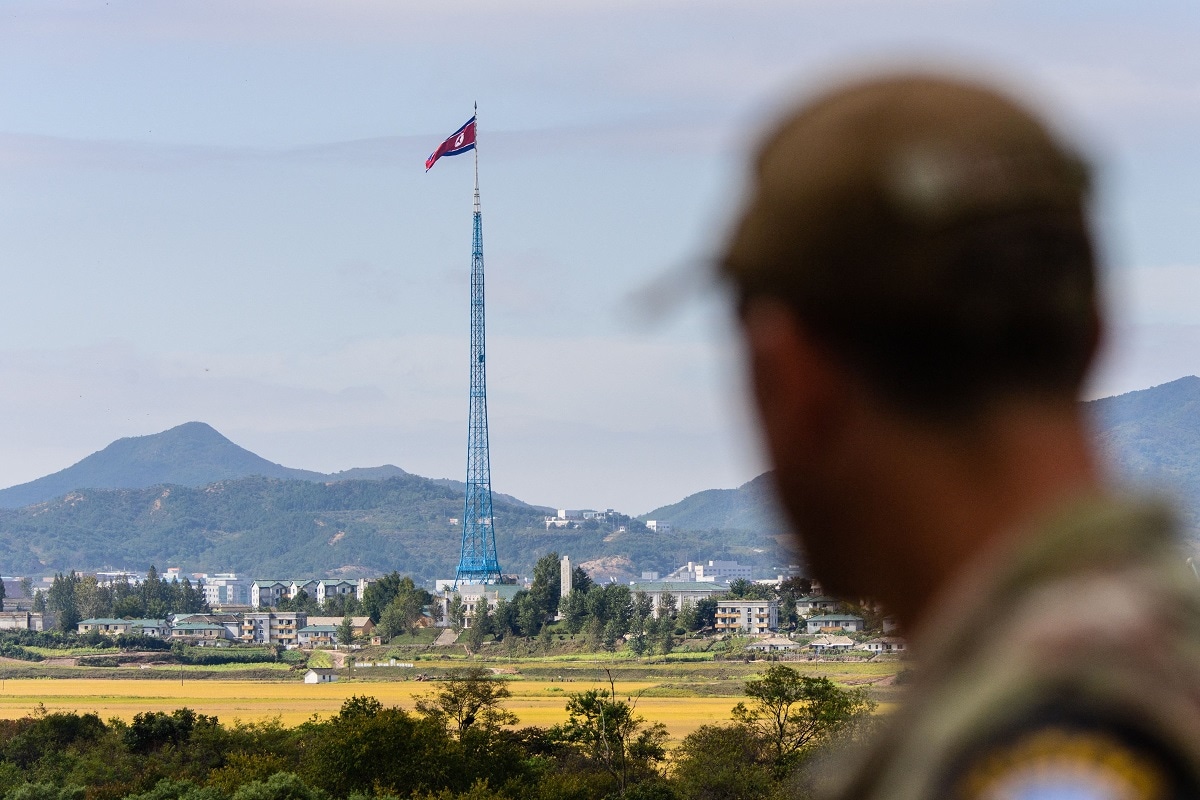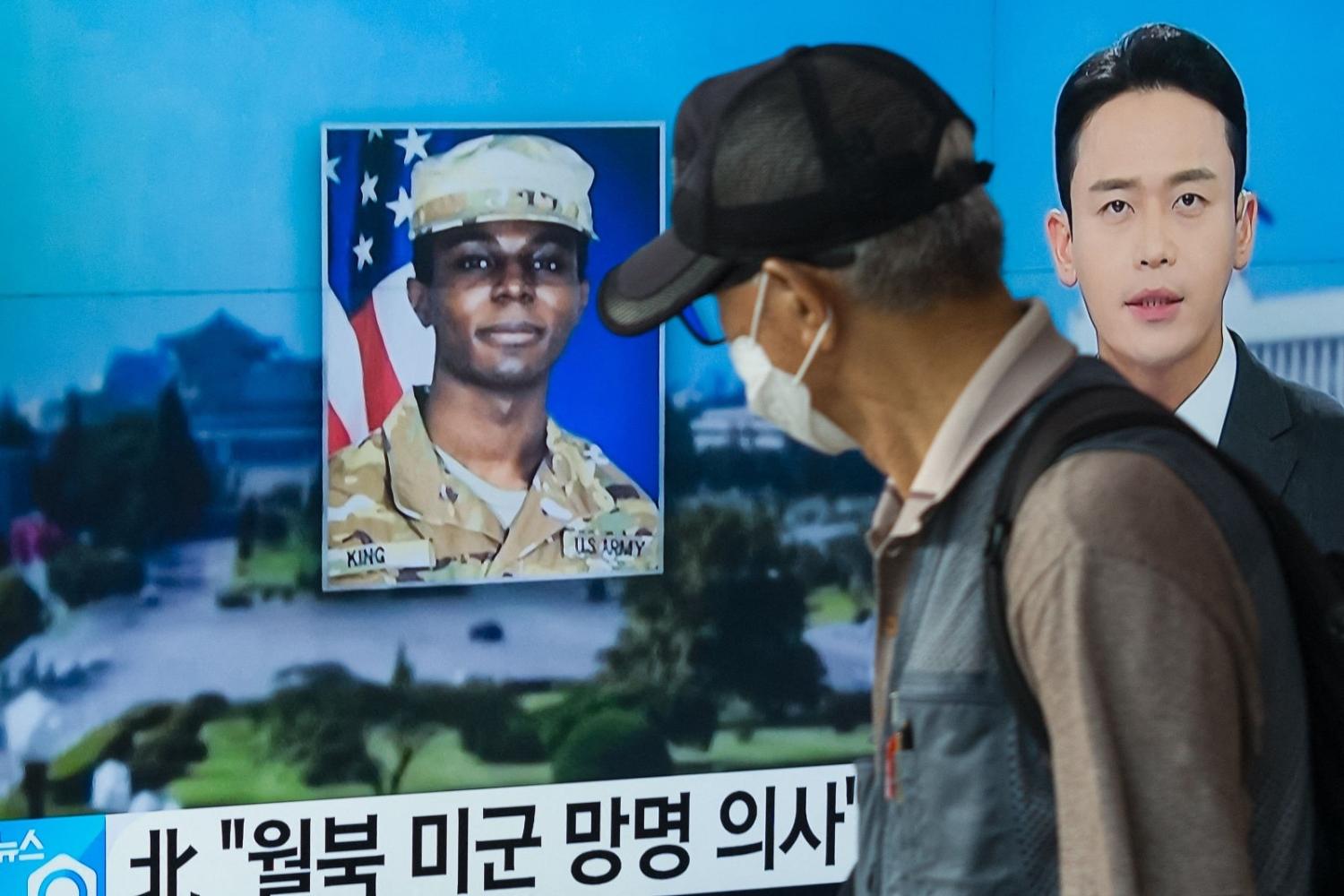North Korea has once again been making headlines, but not for the usual reasons. This time, it was not about a missile test or aggressive rhetoric from state-run media. In fact, the incident was entirely unexpected and rather shocking to many – a US soldier crossed over into North Korea’s side of the demilitarised zone. What’s more, North Korean media now claim the American citizen wants to stay in North Korea “or a third country” due to the “inhuman maltreatment and racial discrimination within the US Army”.
The soldier, Private Travis T. King, crossed into North Korea “willfully and without authorisation” on 18 July, one day after being released from a detention centre in South Korea. Instead of boarding a plane back to the United States, King went on a DMZ tour and bolted across the border before anyone could stop him.
“Travis King confessed that he had decided to come over to the DPRK as he harboured ill feeling against inhuman maltreatment and racial discrimination within the US Army,” North Korea’s KCNA reported last week, adding that King “expressed his willingness to seek refuge in the DPRK or a third country”.
While it is not possible to verify North Korean claims about King, he is not the only American soldier to defect to the hermit state. Back in 1962, US Army soldier James Joseph Dresnok crossed the DMZ into the North and ended up living in the country until his death in 2016, having even appeared in many North Korean films. Other examples include Charles Robert Jenkins, who defected to the North in 1965, and Joseph T. White, who defected in 1982. All were US soldiers stationed in the South.
Stories of people defecting to the North are uncommon. According to South Korean statistics, the reverse is the norm, with nearly 34,000 North Koreans defecting to the South, while only 29 have returned to the North. Although very few North Korean defectors end up going back to their home country, this doesn’t mean that all who remain in the South are satisfied with their new lives.

In reality, many North Korean defectors face countless challenges ranging from integrating into a fast-paced, modern society to difficulty finding stable jobs and making ends meet. According to a 2022 survey published by the Database Center for North Korean Human Rights (NKDB), North Korean defectors earn about 74.4% of the average income of salaried South Korean employees.
In addition, defectors often experience discrimination. A 2017 poll showed that nearly half of all defectors living in the South felt discriminated against due to their economic status (16%), level of education (14.4%), or region of origin (12.2%). Many South Koreans see their North Korean counterparts as “a cultural other”, reluctantly tolerating their presence while never fully accepting them as a “normal” member of society. Despite sharing a common history, language, ethnicity and traditions, North Koreans often feel like “strangers in a strange land” once they enter South Korea.
In fact, some would rather return to North Korea altogether. According to the 2022 NKDB report, 18.8% of surveyed defectors said they had thought about going back to the North. Another survey published the same year by the Seoul National University Institute for Peace and Unification Studies showed that 18.5% of North Korean defectors expressed that they “regret” moving to South Korea.
The reasons for this are several, including wanting to see family and friends, difficulty integrating into South Korean society, unfair treatment, and the need for greater emotional support. The lack of community in the South is a particular reason why some defectors consider returning to their homeland. However, there are also cases where defectors have been tricked by brokers who paint South Korea as a land of opportunity and wealth. These North Koreans have demanded to be repatriated to the North once they have realised the realities of living in the South. The cases of Kim Ryon-hui (48) and Kwon Cheol-nam (44) fall under this category and made headlines in 2017. Moreover, although official statistics only identify 29 re-defectors, this figure is likely to be much higher as the whereabouts of around 900 defectors were reportedly unknown as of 2017.
Not all re-defectors go back to the North willingly, however. Some return because their family is in danger or due to heavy debts. Others are arrested and brought back by force. The latter is especially common in China, where North Korean authorities are heavily active in border regions to arrest North Korean citizens, often with cooperation from Chinese authorities. In fact, South Korea’s Unification Ministry last week asked for China’s cooperation in not repatriating North Koreans who have been arrested in China after fleeing the North.
So, what happens to these defectors once they return to North Korea? Each case is different. Some returnees are arrested and sent to prison camps, while others undergo rigorous re-education and are used for propaganda purposes. The latter often give interviews on North Korean TV about their difficult life in the South while praising the superiority of the North Korean system. Others are sent on a national tour to give lectures about the difficulties they faced after defecting. Such accounts have reportedly been effective in the past at dissuading others from leaving the North.
Even though some defectors do choose to go back to North Korea willingly, most surveys show that the majority of North Koreans who come to the South do prefer their new life and are satisfied with their decision to leave the North. Some young defectors are even trying to bridge the divide with their southern compatriots through various forms of media. The Yoon Suk-yeol government in the South has also pledged to provide greater institutional support for defectors so they can “stand on their own” and “be the assets for unification in the future”.
While very few may choose to go back, it is clear that the majority of North Koreans are desperate for a fresh start.

